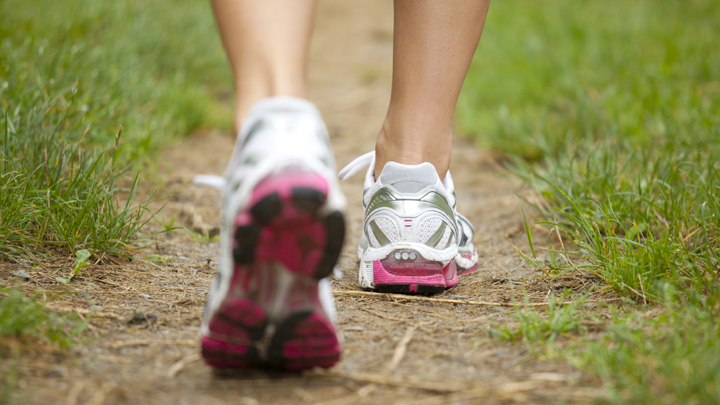The most vital reason to take that daily walk…

We spend most of our lives sitting, standing or sleeping. What if we were to swap just one hour per day with walking?
According to a new study by the University of Sydney, the results could be the difference between life and death.
This enormous study, which spanned more than 200,000 Australians, has revealed some alarming statistics:
- Swapping one hour of sitting with walking (or an equivalent physical activity) can lower the chance of an early death by 12-14%.
- Swapping one hour of sitting with standing can lead to a 5% reduction in chance of a premature death.
- Swapping one hour of sitting with sleeping had a 6% decrease in death.
Swapping walking with sitting, on the other hand, led to a 13-17 increase in risk. The results are loud and clear: we need to take that walk.
According to Associate Professor Emmanuel Stamatakis, lead author of the study, this is an important wake up call to use our time wisely.
“Previous research established the benefits of adequate physical activity or sleep and the risks of too much sitting, but this is the first to look at what happens when we replace one activity with an equal amount of another,” he said.
“The results show that inactivity is an even bigger public health challenge than we initially thought.
“With the average person sitting watching two to three hours of TV a day, there is definitely scope for people to get off the couch and be more active.
“But it’s also time for governments to realise that physical activity cannot be treated as the sole responsibility of individuals because we live in a physical activity-hostile world.
“Finger-pointing at people because they do not do the right thing has not solved any health problem to date and it is not going to solve the problem of inactivity either.”
This is also a strong reminder that exercise doesn’t have to be a huge, intensive commitment (though that is another important matter in itself); the simplest of physical movement can make a very significant difference.
“The important thing for people to remember is the more you move the better, even if this movement is incidental or at a light intensity,” said Professor Stamatakis.
“It doesn’t have to be formal exercise in a gym, it can be as simple as kicking a ball with your kids in the backyard, going for a walk in the neighbourhood instead of watching another hour of TV, or walking your dog for an extra half an hour a day”.
“But we also need a long-term vision that makes physical activity the easy and convenient option”.
“This means better infrastructure like more cycleways, better connected parks, and better public transport so physical activity becomes an integral part of people’s daily lives”.
Do you feel you walk enough? Does this make you rethink your priorities?








 Proudly Australian owned and operated
Proudly Australian owned and operated